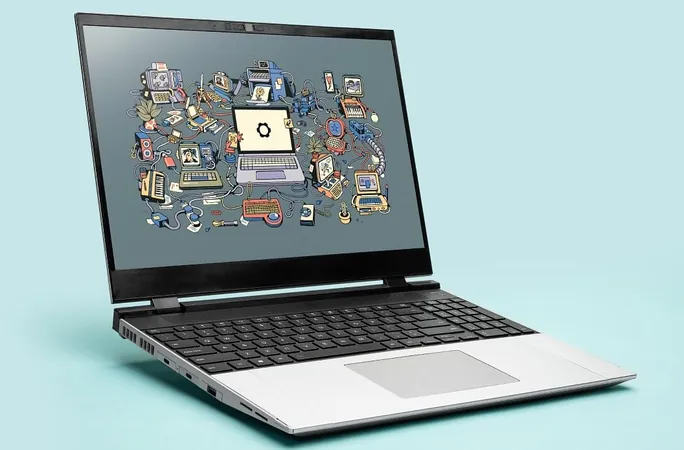
RISC-V Main Board Now Shipping for Framework Laptop - A Game Changer in Modular Computing!
2024-11-18
Author: Arjun
Introduction
In a groundbreaking move for modular computing, the Framework laptop is stepping out of the confines of the x86 architecture and making waves with the introduction of a RISC-V main board. This notable advancement became the highlight of the recent Ubuntu Summit 2024, where Framework’s CEO, Nirav Patel, demonstrated a live modification of a Framework Laptop from x86 to the new RISC-V architecture.
Live Demonstration at Ubuntu Summit 2024
During a captivating five-minute Lightning Talk, Patel expertly opened a Framework machine, swapped out its conventional motherboard for a RISC-V-powered version, and seamlessly reassembled it—all while engaging the audience with his presentation. This impressive feat showcases the versatility of the Framework platform and puts the spotlight on the potential of RISC-V as a viable alternative to traditional computing architectures.
Ordering the RISC-V DC-ROMA Board
Now, interested users can place orders for the RISC-V DC-ROMA board through DeepComputing, with the initial availability granted to those in their early access program. The new main board is powered by a StarFive JH7110 System-on-Chip (SoC), which features six CPU cores—two dedicated processors and four general-purpose cores running at advanced clock speeds of up to 1.5 GHz.
Performance Considerations
Although this SoC supports 8 GB of RAM and eMMC storage, early testing has shown that while it can handle tasks like high-definition video playback, it may not match the performance levels seen in more established architectures like Arm or x86. Reports from the Summit suggest that performance felt sluggish compared to devices like the Raspberry Pi 3, indicating that while RISC-V represents a promising open instruction set architecture, it still has wonders to work within the realm of high-performance computing.
A Shift Toward Open-Source Principles
Despite its current limitations, the RISC-V architecture presents an exciting opportunity for general-purpose computing, especially for less demanding applications. This innovation marks not just a technical achievement but also a shift toward open-source principles in hardware, something increasingly valued in the tech community.
Commitment to Modularity and User Feedback
Framework's continued commitment to modularity has resulted in practical advancements, including the launch of a new 16-inch repairable laptop and ongoing updates to hardware specifications. Users are expressing enthusiasm over the modular design of Framework laptops, and CEO Patel hinted at ongoing projects aimed at integrating a classic ThinkPad keyboard design into future models, promising a better typing experience which many users have expressed a desire for.
The Future of Modular Computing
As the demand for more user-repairable laptops continues to grow, the successful introduction of the RISC-V main board highlights an exciting transitional period in personal computing. The tech world anticipates further innovations from Framework and a potential race to create an Arm-based CPU with performance to rival industry giants. For now, though, the community is calling for more modular options that meet user-friendly specifications, particularly in keyboard design and overall performance.
Conclusion
Stay tuned—it looks like the future of computing just got a whole lot more modular and interesting!



 Brasil (PT)
Brasil (PT)
 Canada (EN)
Canada (EN)
 Chile (ES)
Chile (ES)
 España (ES)
España (ES)
 France (FR)
France (FR)
 Hong Kong (EN)
Hong Kong (EN)
 Italia (IT)
Italia (IT)
 日本 (JA)
日本 (JA)
 Magyarország (HU)
Magyarország (HU)
 Norge (NO)
Norge (NO)
 Polska (PL)
Polska (PL)
 Schweiz (DE)
Schweiz (DE)
 Singapore (EN)
Singapore (EN)
 Sverige (SV)
Sverige (SV)
 Suomi (FI)
Suomi (FI)
 Türkiye (TR)
Türkiye (TR)